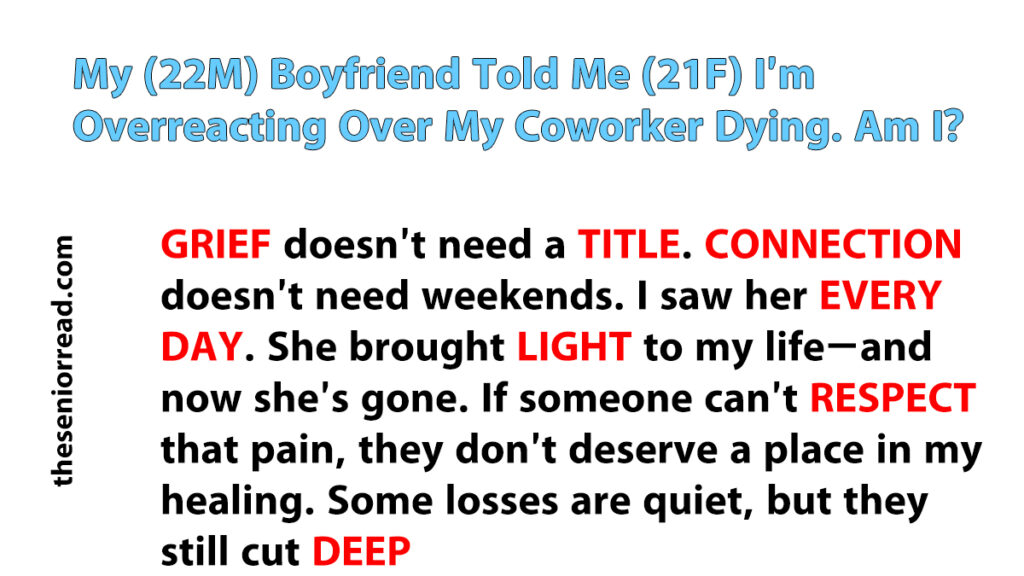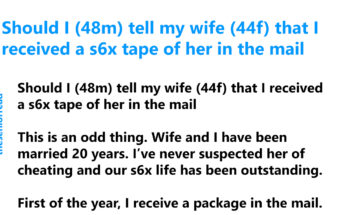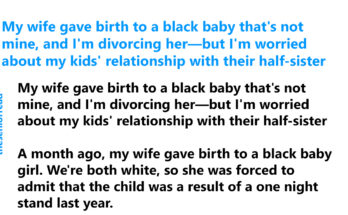My coworker passed away. She was someone I saw every single day for nearly three years. Through the rhythm of daily work, we built a quiet but meaningful bond. She brought warmth to the atmosphere, and since she sat right beside me, we spoke often—about life, work, and everything in between. Her presence made the space feel lighter.

Her death affected me more deeply than I expected. Part of it was because the way she passed was eerily similar to how my mother died. That parallel was emotionally jarring and reopened wounds I hadn’t fully processed.
The day after she died, my boyfriend approached me for intimacy. I told him I wasn’t in the emotional space for that, given everything that had just happened. I needed time to grieve and reflect.
He didn’t take it well. He sent me a long message saying he was done with the relationship. I didn’t respond—I just blocked him. I couldn’t handle that kind of insensitivity on top of my grief.
Later that same day, he called me from a different number. I answered, hoping maybe he’d reconsidered and wanted to apologize. But instead, he doubled down. He told me I was overreacting, that I was letting someone who “wouldn’t even care if I died” affect my personal life.
He asked if we’d ever spent time together outside of work, as if that was the only measure of a real connection. I told him, “You don’t need to hang out outside of work to form a bond. I saw her every day. You don’t get to minimize my grief just because you don’t understand it.”
Then he said something cruel—“You must’ve been sleeping with her or something.” That was the moment I hung up. I couldn’t believe he’d say something so disrespectful and baseless.
I’ve been sitting with all of this, wondering: Am I grieving too much? Is it wrong to feel this deeply for someone who wasn’t a family member or close friend in the traditional sense?
But I’ve come to realize that grief doesn’t require a title. You don’t need to have shared weekends or holidays to feel someone’s absence. Sometimes, the people we see every day become part of our emotional landscape. And when they’re gone, it leaves a real void.

